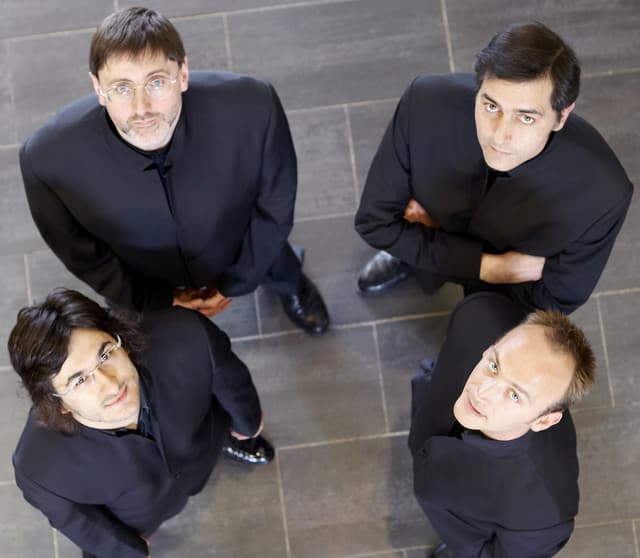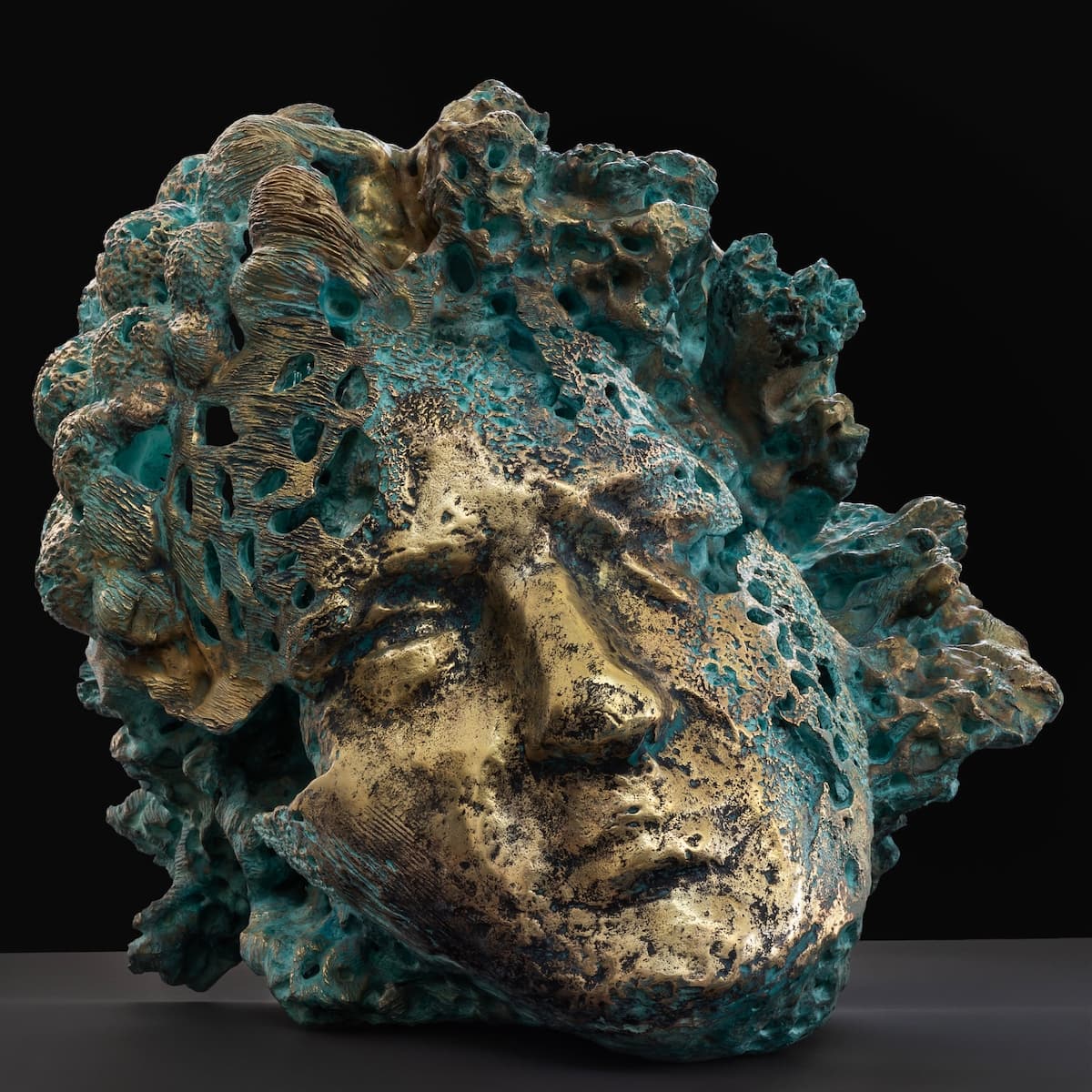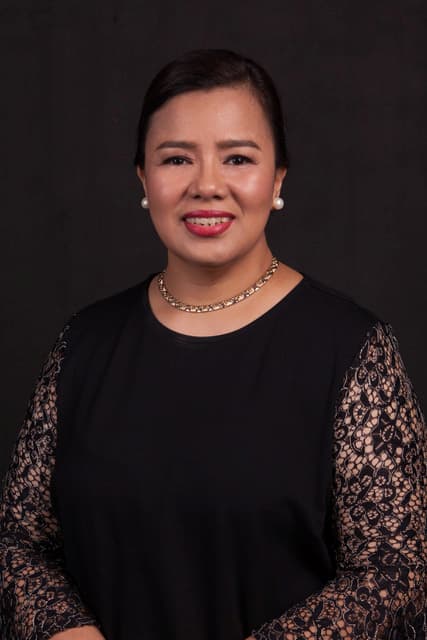The brilliant new recording by Madeleine Mitchell is a wonderful review of late 20th- and early 21st-century violin music. Many of the works were written as gifts for Ms Mitchell and on four of the works, their composers play the piano part. From music inspired by the flight of birds to music created out of the frustration of working through a company’s telephone system, we hear the breadth of performance technique (and humour) Ms. Mitchell brings to the works.
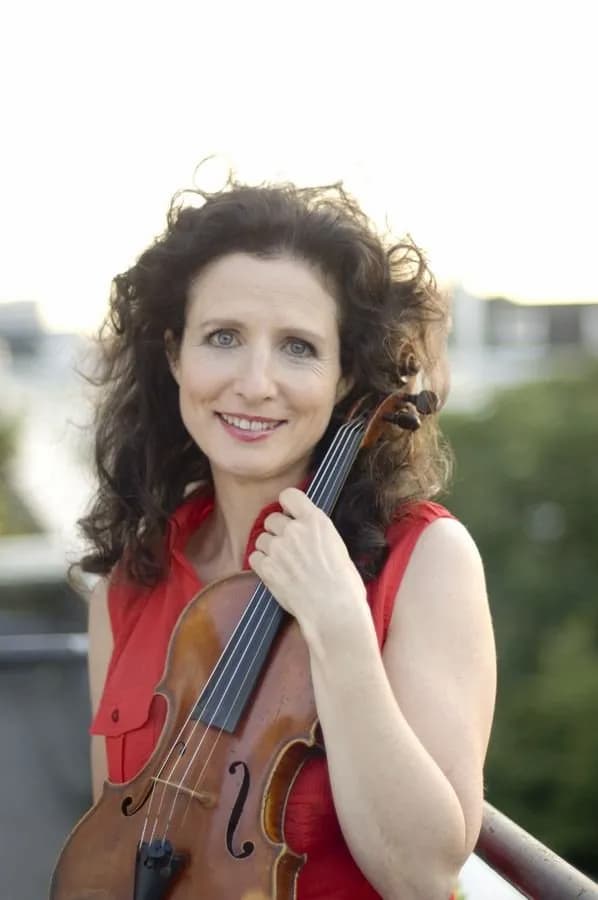
Madeleine Mitchell © Rama Knight
The earliest piece on the recording is by English composer Alan Rawsthorne (1905–1971). His Violin Sonata was written in 1958 for Joseph Szigeti (1892–1973), who never performed it and it received its premiere at the 1960 Cheltenham Festival. This performance was made by Ms. Mitchell and her long-time duo partner Andrew Ball (1950–2022) in 1996 for the BBC and presented as a tribute to Mr. Ball. The work juxtaposes D major and E flat minor, carries strong rhythmic nods to Hungary (in honour of the original dedicatee), and is a beautifully compact and complex work.
Alan Rawsthorne: Violin Sonata – I. Adagio – Allegro non troppo (Madeleine Mitchell, violin; Andrew Ball, piano)
Ms. Mitchell and Mr. Bell recorded four albums together until Parkinson’s Disease cut short his career and their 20-year professional association.
Two of the other composers on the album have associations with the Royal College of Music in London, where Ms. Mitchell herself has been associated for so long.
Joseph Horovitz (1926–2022), RCM composition professor, gave Ms. Mitchell his manuscript copy of Dybbuk Melody in the 1980s and, in his inscription on the work, encouraged her to use it for encores. That she did for many years and the unpublished work appears on this recording for the first time. Written for solo violin for the closing credits of the 1980 production of Ansky’s The Dybbuk (BBC), the work is an emotional song of the otherworldly. Ansky’s play was first produced in Warsaw in 1920 and tells of the possession of a bride by a former suitor who died upon hearing of her engagement.
Joseph Horovitz: Dybbuk Melody (Madeleine Mitchell, violin)
One work on the recording that was commissioned by the violinist was Sojourner Truth by Errollyn Wallace, also a professor at the RCM. Mitchell gave the premiere in 2021 in her programme for International Women’s Day, when the composer was at home in Scotland, unable to travel and only able to comment on the work via FaceTime. For this recording, the composer is at the piano and Mitchell says how wonderful it was to work directly with the composer so that they could discuss their ideas, have insights into the performance process, talk about the character of the work, and be available for ‘how would you like this to go’ conversations. The two created a video discussing the commission and recorded the work.
SOJOURNER TRUTH: Madeleine Mitchell & Errollyn Wallen perform/discuss the violin piece honouring her
The spine in the middle of the recording is Thea Musgrave’s Colloquy, a work for violin and piano. It was given its 1960 debut by the same team who gave the premiere of Rawsthorne’s Violin Sonata, Manoug Parikian and Lamar Crowson. The forceful opening is part of Musgrave’s use of serial compositional style in this period.
Musgrave: Colloquy. I. – (Madeleine Mitchell, violin; Ian Pace, piano)
The title for the Musgrave work was the inspiration for the name of the album. A ‘colloquy’, a conversation, becomes Violin Conversations, reflecting the violin talking with the piano, the violinist talking with the composers, the violin talking with the composers – all an unending dialogue about music, the making of music, and music making.
One piece where the composer and the performer worked together was Kevin Malone’s Your Call is Important to Us, a reflection on the seemingly unending process through telephone answering chains – press this, press that – and, in the end, having to start all over again. Mitchell said that Malone’s writing benefitted from her experience – as a non-violinist, he was sometimes asking for sounds or techniques that could be more easily accomplished a different way. The tape, reflecting some three years of telephonic frustration, overlays the voices and requests, and phone beeps in a way that every listener will recognize. The piece closes with a section of Debussy’s Arabesque used as ‘muzak’.
One beautiful work for violin and piano was by composer Douglas Knehans, a former student of Musgrave, who had invited Mitchell to the University of Cincinnati in 2019 for a series of performances. The work written for her, Mist Waves, is slow and expressive, reflecting the sometimes-thick and sometimes-thin nature of mist on the ground. Both mystery and magic are part of the music and part of the performance.
Douglas Knehans: Mist Waves (Madeleine Mitchell, violin; Nigel Clayton, piano)
The other works on the album include attractive pieces by Wendy Hiscocks, Martin Butler, Howard Blake and Richard Blackford, all friends of the violinist. The collection on this recording is a testimony to the art of the contemporary violin. Mitchell enjoys the new, enjoys facing a new piece, particularly when there’s an opportunity for a dialogue with the composer. The insight into a composer’s vision in a one-to-one session cannot be replaced by historical research, yet, at the same time, infuses her work with composers with whom it is no longer able to have a conversation.
Upcoming projects include recording another album. Following Mitchell’s film from the V&A with her London Chamber Ensemble which included her arrangement for string quartet of Herbert Howells’ Luchinuska, the third piece in his 3 Pieces Op. 28; the Howells Trust loved it and asked her to take on the recently discovered Howells String Quartet No. 3. Written in 1916 and then lost on a train, Howells re-wrote the work in 1919–20 but that version is lost as well. Howells wrote it again in 1923 but made changes. This recording will be a return to the original which has recently been found. Madeleine will be giving the premiere in London on 29 June and recording this work with her London Chamber Ensemble Quartet.
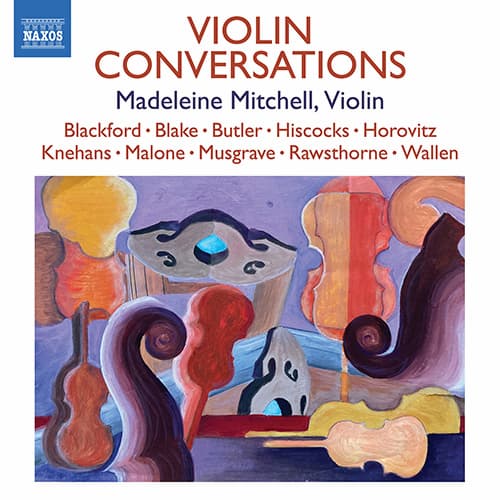
Madeleine Mitchell
Violin Conversations
23 June 2023
Naxos Records: 8.574560
For more of the best in classical music, sign up for our E-Newsletter

